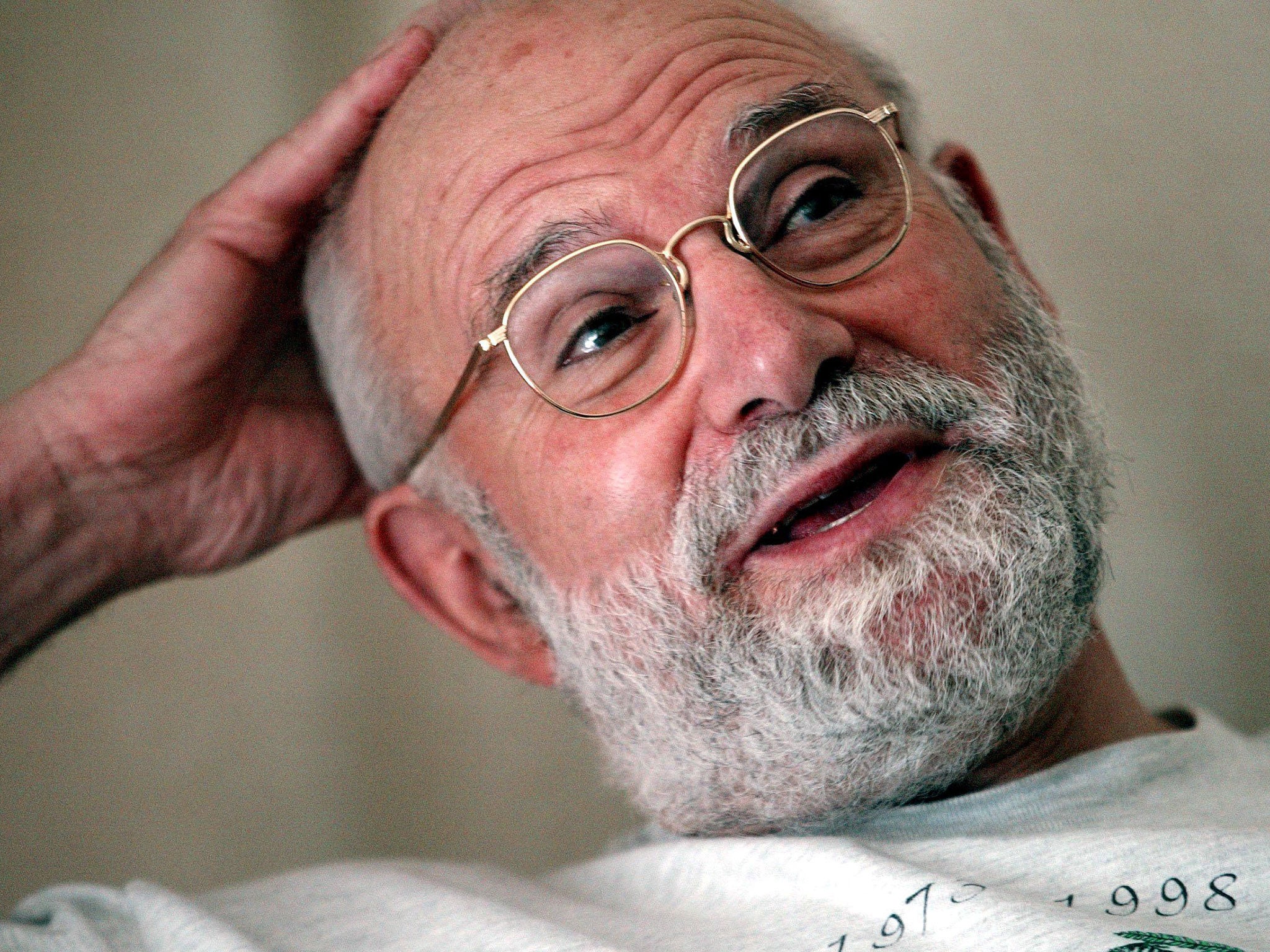Oliver Sacks – an appreciation: He was able to make us see ourselves differently
He brought a humanity that showed respect for his subjects and readers

Oliver Sacks had the expertise of a neuroscientist, the mind of a philosopher and the voice of a poet. Excelling in all three domains, he was one of those rare writers and thinkers who was able to to make us see ourselves differently.
Sacks did not invent the genre of the psychological case study as a philosophical reflection. If anyone deserves that accolade it was the Russian Alexander Luria, whose work Sacks often cited. But it was arguably Sacks who perfected it.
I first encountered Sacks as a philosophy undergraduate studying personal identity. As a kind of intellectual curveball, Michael Proudfoot threw in the bizarre characters from Sacks’s fourth book, The Man Who Mistook His Wife for a Hat, people who could no longer recognise ordinary objects, who couldn’t remember a name or a face, or who didn’t believe they had bodies.
It was a revelation. Sacks was not required reading, but he should be, especially for philosophers. Philosophy prides itself on upending received understandings of people and the world, but human nature turned out to be stranger and more complex than even geniuses like Hume and Descartes could imagine.
In the hands of a blunter intellect, Sacks’s strange patients could have ended up as little more than a contemporary freak show. But with Sacks, we never lost sight of the fact that these were people disturbingly like you and me, except for one thing: a capacity lost, a sense heightened, a trait exaggerated. This was what made them so uncanny: in a sense they were only slightly different from the rest of us, but that one small difference made all the difference in the world. Sacks always made us look at ourselves and never encouraged us to merely gape at others.
In the hands of a drier scientist, his patients would have been paradoxes to be solved. Like the thought experiments of philosophers, they would have been held up merely as the raw material for some analytic work on our concepts of self and identity. Sacks was interested in interrogating our sense of who we are, but he did so in a way that never tried too hard to tie up the loose ends of messy reality. He was the kind of thinker whose writing wrestles with ideas, rather than merely sets them down.
In an era of narrow academic specialisation, Sacks was a shining example of how fruitful it can be to trespass on the intellectual turf of others, be they philosophers, musicologists or historians of science. He brought a clear eye to all his subjects but also a modesty which stopped him delivering pat explanations or tidy conclusions, and a humanity that showed profound respect for his subjects and readers alike.
Julian Baggini is co-founder of The Philosophers’ Magazine , and the author of several books on philosophy
Join our commenting forum
Join thought-provoking conversations, follow other Independent readers and see their replies
0Comments